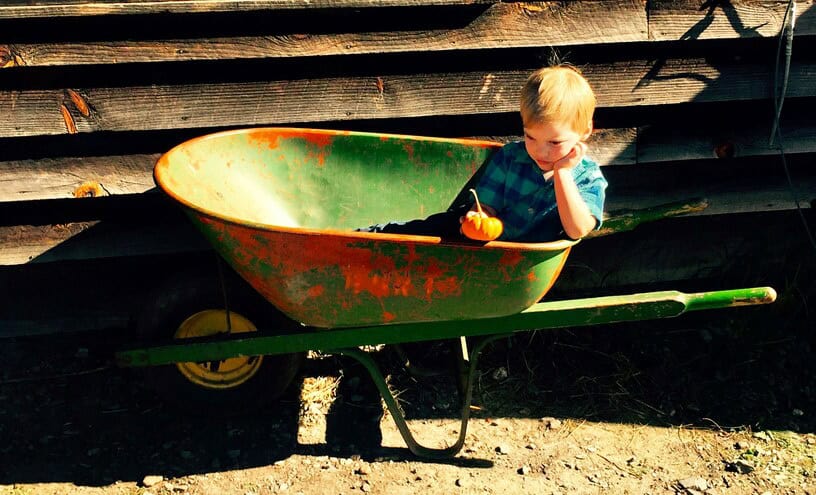Kids learn resilience through experiences.
As parents, our job is to support them without taking over, even though our first instinct is to protect and make everything easy for them.
If you want to raise kids who can deal with setbacks 和 face the world when they grow up, it’s important to know when to step in.
Don’t Save Them from Every Hardship
Kids need to face some struggles to grow strong.
Whether it’s a tough homework assignment, a messy room, or a fight with a friend, sometimes, the best thing you can do is step back.
When parents swoop in to fix everything, kids miss out on learning how to cope and solve problems.
Instead, let them experience these small hardships and face consequences. This builds patience, independence, 和 信心.
Every problem they manage to solve with their own efforts teaches them that they’re not helpless, and that they have what it takes to succeed.
Don’t Rush to Fix Their Emotions
It’s tempting to rush over and say, “It’s okay” or “Don’t cry,” when your child is upset.
However, kids sometimes need space to just experience their feelings fully.
When parents immediately try to fix their emotions, they miss out on learning how to regulate themselves.
Instead, sit with them, acknowledge their frustration, and give them some time to process. It’s okay to let a tantrum run its course when it’s safe.
This teaches children that negative feelings are normal, and that they can manage them.
Over time, they become better at calming themselves down and dealing with their emotions without needing constant intervention.
Be Comfortable With Disappointment
Saying “no” and sticking to boundaries might cause crying and tantrums, but it’s a vital step in teaching resilience.
Kids must learn that disappointment is part of life, and they can’t always get what they want.
When parents are firm but kind, children naturally come to understand that boundaries are about love and safety, not control for the sake of control.
This helps them develop patience and learn to handle frustration.
They also get to learn that disappointment is a temporary feeling.
Setting clear limits, even when it’s tough, builds 情感力量 and teaches kids to handle problems with grace.
Avoid Overpraising Every Achievement
Overpraising is a natural reaction every parent has when their child succeeds in anything, but over time, it can actually create pressure.
Instead of overpraising kids when they’re perfect, try to praise their efforts.
Hard work, persistence, and courage to try new things are all praiseworthy things.
This helps children develop confidence that won’t plummet just because they didn’t win a competition or get named the student of the year.
When parents support effort over perfection, kids learn to value their own progress and become more resilient to setbacks.
It’s important to teach them that mistakes and failures are a natural part of learning.
Don’t Make Everything Too Easy
Part of building resilience is letting kids do things for themselves, even if it’s uncomfortable at first.
Making their bed, tying their shoes, or packing their school bag teaches responsibility.
When they get in trouble at school, don’t swoop in and argue with the teacher. Instead, let them deal with the consequences of their actions.
When parents step in to do everything, children miss out on learning independence.
It’s necessary to let them struggle a little; that’s how they learn 毅力 和 解决问题.
Giving kids responsibilities and trusting them to handle it alone builds their confidence.
Don’t Shame Them for Mistakes
Everyone makes mistakes, and it’s really important for parents to control their response because it makes a big difference.
Shaming a child for messing up and damaging their self-esteem can make them afraid of trying again.
Instead, talk to them about how they can do better next time.
This teaches them that mistakes are a natural part of growth, and not something to be ashamed of.
When children feel safe to fail and learn from it, they become more resilient.
Supporting them without shame encourages a healthier attitude towards setbacks.
Respect Their Feelings, Don’t Overregulate
Tantrums and big feelings are part of childhood.
Parents who try to control or dismiss these emotions often miss an opportunity to teach emotional regulation.
Instead, be present and let it pass.
This, of course, doesn’t mean giving in to every demand, but rather showing you understand and letting them cope.
Over time, kids learn to deal with their emotions without needing external regulation.
Emotional management is key to becoming a confident, calm person.
Give Them Space to Discover Themselves
Parents really don’t need to control every detail of their child’s life.
Beyond safety and health, kids should be given room to explore who they are.
Allowing them to make choices, pursue interests, and learn from their experiences helps them develop an identity.
Helicopter parenting can stifle their independence.
Trust your child to find their way, and support their individuality.
This freedom to experiment fosters a sense of competence and self-reliance, which are essential qualities for mental strength.
Don’t Compare Them to Other Kids
Comparing your child to others – like neighbors or classmates – is very hurtful and damaging.
Every child develops at their own pace and has their unique strengths.
Constant comparison can lower their self-esteem and create unnecessary pressure.
Instead, recognize their individuality and help them understand that everyone’s journey is different. This fosters 自我接受 and confidence.
Kids who learn to value their own path are more likely to handle setbacks with grace, knowing they are enough just as they are.
Work on Yourself First
The most resilient kids often come from homes where parents work on themselves, too.
Healing your past trauma, managing unresolved feelings, and being self-aware model healthy coping for your children.
When parents are 情感平衡, they respond more calmly and thoughtfully.
This creates a safe environment where kids can learn resilience by example.
Taking care of your mental health doesn’t just benefit you, but your whole family.
By working on yourself, you teach your children that growth doesn’t stop with age, and that it’s okay to seek help along the way.
A little Aquarius, devoted to writing and embroidery. Through my writing, I hope to empower readers to align with their true selves and navigate life’s mysteries with confidence.











